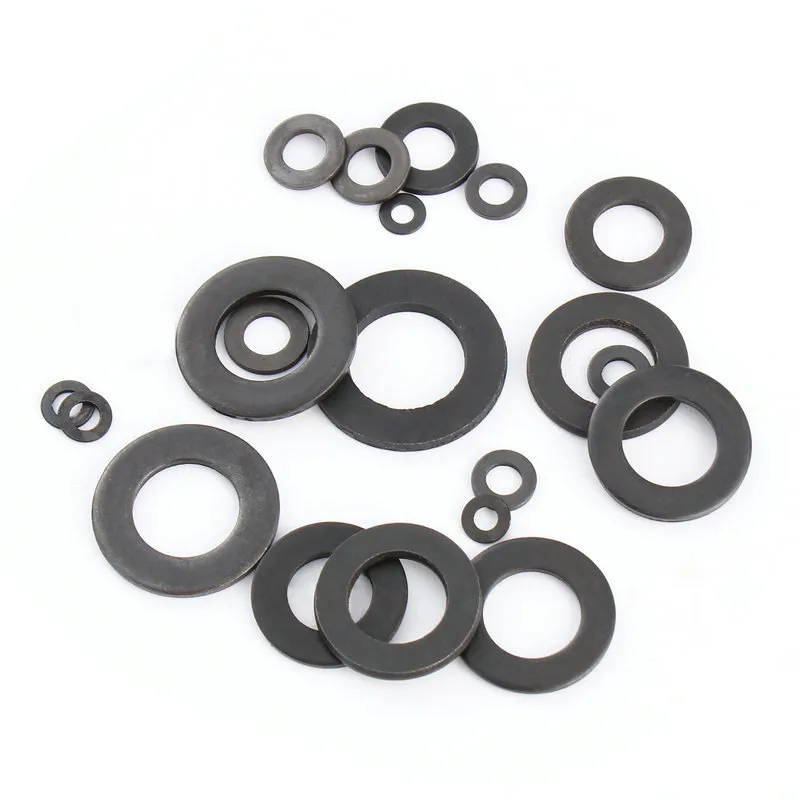

Fine Thread Flange Nuts - Secure Fastening Solutions
Aug . 31, 2024 05:56 Back to list
Fine Thread Flange Nuts - Secure Fastening Solutions
The Importance of Fine Thread Flange Nuts in Modern Engineering
In the world of mechanical engineering and construction, the selection of fasteners is crucial for the integrity and performance of structures and machines. Among various types of fasteners, fine thread flange nuts stand out for their unique design and robust performance. This article delves into the advantages and applications of fine thread flange nuts, emphasizing their significance in contemporary engineering practices.
What are Fine Thread Flange Nuts?
Fine thread flange nuts are a type of nut that features a flange, or a wide rim, which provides additional load distribution when tightened. The fine thread designation refers to the pitch of the threads being closer together than those of coarse threads. This fine pitch allows for greater precision and tighter control during fastening, which is particularly beneficial in applications where vibration and movement can cause loosening.
Advantages of Fine Thread Flange Nuts
1. Enhanced Clamping Force Fine threads create a larger effective surface area for clamping. When tightened, these nuts distribute stress more evenly across the surface, reducing the risk of deformation and failure.
2. Reduced Risk of Loosening The tighter fit of fine threads provides superior resistance to vibrations and dynamic loads. This feature is essential in industries such as automotive and aerospace, where maintaining the integrity of joints under stress is critical.
3. Improved Alignment The flange acts as a built-in washer, improving alignment and reducing the potential for misalignment during assembly. This characteristic is vital in applications where precise positioning is paramount.
fine thread flange nuts

4. Versatility Fine thread flange nuts can be used in a variety of materials and applications, from structural components in buildings to critical parts in machinery. Their adaptability makes them a preferred choice across many industries, including manufacturing, automotive, and construction.
5. Resistance to Corrosion Many fine thread flange nuts are fabricated from materials that resist corrosion, such as stainless steel or specialized coatings. This feature extends the lifespan of the fastener and ensures reliability in harsh environments.
Applications of Fine Thread Flange Nuts
Fine thread flange nuts are utilized in a myriad of applications due to their reliability and efficiency. In the automotive industry, they are commonly found in engine assemblies, suspension systems, and chassis components, where strength and stability are paramount. In aerospace engineering, these nuts are essential for securing critical components while minimizing weight.
In construction, fine thread flange nuts are often used in steel beam connections and prefabricated structures, where they help maintain structural integrity under significant loads. Additionally, they are employed in machinery and equipment manufacturing, providing secure fastening solutions that withstand operational vibrations and stresses.
Conclusion
The impact of fine thread flange nuts on modern engineering cannot be overstated. Their design and functionality offer unparalleled advantages in terms of load distribution, vibration resistance, and alignment. As industries continue to demand higher performance and reliability in fasteners, the role of fine thread flange nuts will undoubtedly grow, solidifying their status as a staple in engineering applications. Understanding their benefits and applications can help engineers and builders make informed decisions, ensuring that they choose the most effective fastening solutions for their projects.
Latest news
-
Hot Dip Galvanized Bolts-About LongZe|High Strength, Corrosion Resistance
NewsJul.30,2025
-
High-Strength Hot Dip Galvanized Bolts - Hebei Longze | Corrosion Resistance, Customization
NewsJul.30,2025
-
Hot Dip Galvanized Bolts-Hebei Longze|Corrosion Resistance&High Strength
NewsJul.30,2025
-
High-Strength Hot-Dip Galvanized Bolts-Hebei Longze|Corrosion Resistance&High Strength
NewsJul.30,2025
-
Hot Dip Galvanized Bolts-Hebei Longze|Corrosion Resistance&High Strength
NewsJul.30,2025
-
Hot Dip Galvanized Bolts - Hebei Longze | Corrosion Resistance, High Strength
NewsJul.30,2025

